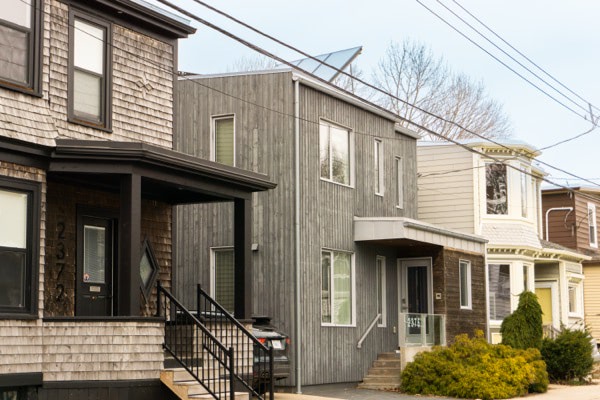How fast can you pay your mortgage off? Can you speed up the process? Here’s what you need to know!

6 tips for building your credit score this summer
If you’re thinking about buying a home, one of the most important steps is making sure you have a solid credit score in place. Your credit score can help determine the types of lenders you will be able to work with and mortgage rates you can land. It’s good to have your credit score in the best possible shape by the time you bring it to a lender for a mortgage application, just in case you need to work on building your credit score.
If your credit score needs some improvement, there are some methods you can use to help get it where it needs to be. While different lenders have different credit requirements, you should strive to achieve a credit score of at least 650, which will move you into the “Good” category. Below are some tips you can use to improve your credit score.
Always pay on time (and more than the minimum)
One of the simplest ways to build your credit score is to ensure you pay off your bills on time. Late payments can result in extra charges and a decrease in your score if it appears as though you’re struggling with your debt. Make it a priority to always pay for everything on time.
You should also try to pay more than the minimum amount if you’re focused on building your credit score. The amount you have on your credit card at the end of the month decides how much interest you pay. The higher your balance, the more interest you end up paying. Paying more than the minimum helps you pay off total debt faster, while also saving you money in interest. Finally, paying off more than the minimum amount lowers your credit utilization ratio (more on that later), which means there is a good chance your score will improve.
Get a higher credit limit — but don’t use more
If you’re able, try to secure a higher credit limit. Most of the time you will have to request this from your bank, but occasionally it is offered to you. This isn’t so you can spend more — in fact, it’s the very opposite. The key to building your credit is to keep your spending the same after your limit increases. Say you originally had a $5,000 limit and your average monthly spendings were around $2,000. If your limit increases to $7,000 and you still only spend $2,000, this means you spend a much lower percentage than you did before, which shows you are responsible. If you suddenly start doubling your spending, this shows you have trouble saving money. The percentage you save and spend has a big impact on your credit score.
Learn about credit utilization ratios
Your credit utilization ratio compares your spending to your total available credit limit. It divides the amount you owe by that total amount. For example, if you spend $2,000 of your $7,000 limit, that gives you a ratio of about 29 per cent. This ratio is fairly influential in determining credit scores, and in general, the lower the score the better. It’s usually recommended that you keep your ratio under 30 per cent to show you have controlled spending and don’t max out your cards.
If you’re focused on building your credit score, you can calculate your ratio yourself and see if it needs to decrease. Of course, the desired ratio of under 30 per cent isn’t set in stone. Different lenders accept different ratios, but it can give you a guideline of where you stand.
Don’t worry, you don’t have to shrink your ratio down too low. In fact, it’s good to keep some balance on your card so lenders have some idea of your spending. Too little spending shows a lack of information, which makes it harder for lenders to understand your habits.
Debt consolidation
A more long-term solution is to consolidate your credit card debt. Credit card debt is unsecured debt, meaning there is no collateral, and your interest rates will be higher. A mortgage, however, is secured because your home is collateral, which gives you lower interest rates.
You can consider consolidating your credit card debt into a secured loan to lower your interest rates, and combine all your payments into one monthly sum. This lowers your spending and makes it easier to track how much you owe. Debt consolidation can temporarily reduce your credit score, but over time, it will rise again if you show responsible payments. For this reason, debt consolidation is more of a long-term solution than a quick fix.
Don’t close old accounts
You might think there’s no use for your unused accounts, but don’t close them down. Credit accounts with a lot of history show proof of your previous spending over the years. This gives lenders a picture of your history with payments. Every credit account also contributes to your available credit, and closing an account and losing some of that credit will increase your utilization ratio. Old accounts can help a lot by proving to lenders how solid your credit payment history is, and how much credit you have available.
Avoid too many credit checks
Lastly, credit checks can be a challenge against building your credit score. Credit checks potentially signal that you plan to take out new debts, so the more checks you do, the more debt lenders might assume you’re taking on. If a lender thinks you have a lot of new debt, you will be considered higher risk and will likely be offered less desirable rates.
Credit checks are either “hard” or “soft.” However, only hard credit checks can potentially affect your credit score. These are formal checks by lenders who are considering providing a loan to a borrower. Soft checks are much more informal. These are checks done by people like employers to confirm records, or by a bank to see if you qualify for new products.
Building your credit score takes time and commitment, but it’s worth it if you’re planning on entering the housing market. A healthy credit score is an excellent asset to have!
If you have questions about buying a home or building your credit score, get in touch with us at Clinton Wilkins Mortgage Team! You can call us at (902) 482-2770 or contact us here.


